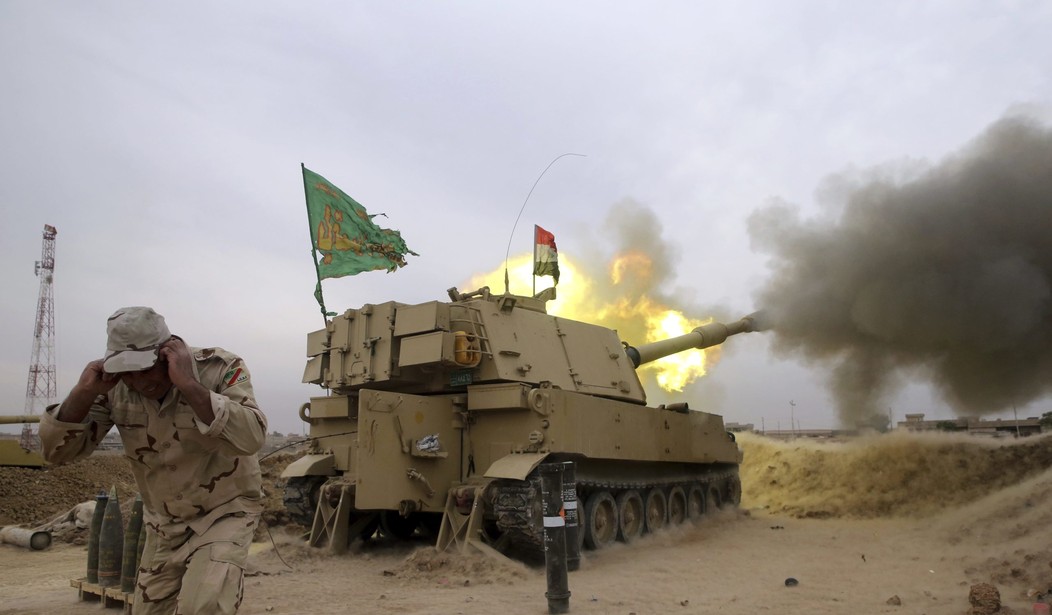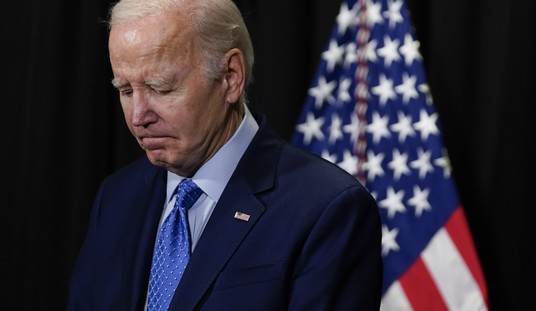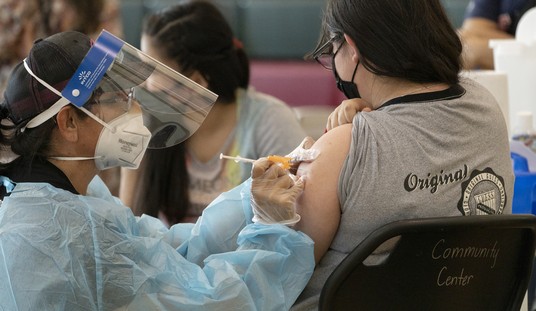ARLINGTON, Va. — After a month of their propaganda outlet insisting they were inflicting a heavy toll on invading Iraqi and Kurdish forces, the Islamic State’s news agency today officially admitted some losses in Mosul in what may be an acknowledgement that they see defeat is a possibility.
This, as the Kurdish, Arab and Assyrian coalition of Syrian Democratic Forces has made notable gains against ISIS’ capital in Syria, Raqqa, with the support of U.S. airstrikes.
ISIS’ Amaq news agency, which delivers attack claims and reports on day-to-day operations, cited “a military source” of the terror group admitting that Iraqi forces had control of two and a half districts in Mosul. They also admitted that Iraqis had entered four other districts.
Still, ISIS remained defiant, saying Iraqis “failed in several attempts to penetrate deeper into the city and suffered heavy losses” that made forces “stop and retreat from several locations.”
Col. John Dorrian, spokesman for Operation Inherent Resolve, told reporters via teleconference from Baghdad that Iraqi security forces “continue making progress in clearing areas of Daesh presence in Mosul and have seen fierce resistance that they had planned for and that we’ve been talking about for months.”
“This is neighborhood-to-neighborhood fighting, particularly in the east, and the Iraqi security forces have moved deliberately and exercised a laudable level of restraint in an effort to protect civilian life,” Dorrian said.
He noted that ISIS fighters have been dressing up as Iraqi security forces “and arresting people who react positively to their presence,” as well as “arresting civilians for having phones and using tunnels to infiltrate civilian neighborhoods.”
“This is extremely tough fighting, but the ISF has continued their advance, liberating Nimrud this past week after initial tough fighting, followed by Daesh retreating toward Mosul.”
ISIS ransacked the ancient Assyrian city of Nimrud, destroying archaeological sites and looting artifacts to sell on the black market.
Dorrian said Iraqi forces “have gotten about a third of the way into eastern Mosul.”
“That’s a very small area and we’re not gonna comment on the position of our U.S. or coalition advisers in relation to those forces. They remain behind the forward line of troops. They’re there in an advisory role,” he said.
“…We are following the Iraqi lead. They’ve shown a considerable amount of restraint with the manner in which they’ve advanced into the city. They’ve tried very hard to protect civilians. We see some of the open source reports with Iraqi security forces sharing their rations, sharing their medical supplies with civilians. That’s a pretty laudable effort. We think it’s something that all Iraqis ought to be proud of. And we’re going to follow suit with that. But make no mistake, we will take every opportunity that we can to remove capabilities that Daesh would use on the battlefield in order to create danger. We’ll take every opportunity to do that.”
Dorrian would not reveal whether or not U.S. troops were inside Mosul, but acknowledged “there’s no question that U.S. advisers are in harm’s way.”
“They are in the thick of a very tough battle. So there is a significant amount of danger here, especially on the eastern axis as they moved into the city. They moved through some very tough resistance as they’ve approached the city. Our advisers are close by,” the spokesman said. “So the enemy does get a vote, but our forces are not really going to be trifled with. They will most certainly defend themselves. And they are there strictly to advise and assist the Iraqi security forces and in this case the [Counter Terrorism Service].”
“It’s very difficult to predict how long it’s going to take,” he said, noting that the U.S. has conducted more than 4,000 airstrikes on ISIS targets that have killed hundreds of jihadists.
“Eventually, the enemy is gonna break,” Dorrian predicted. “It’s gonna take quite some time, and what they’ve done, all these tactics that they’ve used to increase danger for the civilians there, what that means is it’s gonna be a very deliberate fight, very dangerous fight for the forces that are advancing there. But we’ll continue striking the enemy until ultimately the Iraqis are gonna take that city.”
After the fall of Mosul, he added, ISIS will “be back to just being a garden-variety terrorist group.”
But ISIS still has Raqqa, where the U.S.-backed SDF alliance has liberated about 168 square miles in just the past week of its advance on the ISIS capital, and nearly 200 square miles since the start of the operation.
The plan to take isolate and liberate Raqqa, Dorrian said, is “deliberate” and going to be “conducted in phases.”
“Our partners are exactly where they intended to be at the time they intended to be there. They’ve been able to move against the enemy very effectively. They’ve encountered moderate resistance, but they’ve been able to continue their advance,” he said. In response, ISIS has “created a significant number of fighting positions. They have formations, groups of fighters positioned in order to try and harass the advance.”
At the beginning of the month, self-proclaimed caliph Abu Bakr al-Baghdadi told ISIS fighters who had steadily been losing ground since the start of offensive on Mosul, now a month old, to hang in there as the coalition massing against them is part of their apocalyptic prophecy.
Still, he seemed to be looking at strategy post-Mosul.
If those wanting to join ISIS can’t make it to Iraq or Syria, he said, they should head to Libya or other ISIS provinces around the globe. “We will not miss this opportunity to remind our Muslim brothers everywhere that if the roads for making hijrah to Iraq and Sham are closed or confined, then Allah has made an open path for them to make hijrah to one of those other blessed wilayat [provinces],” Baghdadi said.
Baghdadi addressed jihadists in the provinces, including Afghanistan, the Caucasus, Indonesia, Philippines, Sinai, Bangladesh, West Africa and North Africa, as “the supports of Islam and the pegs of the caliphate in the earth.”
“You have stunned the nations of kufr [disbelievers] with your jihad, patience, and steadfastness,” he said.
Libyan forces, though, have been gradually clearing ISIS’ onetime stronghold of Sirte and are expecting full liberation of the city soon. That has flushed terrorists into the desert.
ISIS’ Amaq agency released video today showing a handful of jihadists manning a checkpoint they said was somewhere south of coastal Sirte. In the video, there was nothing but desert as far as the eye could see, with high-voltage power lines the only sign of civilization. A couple of cargo trucks and passenger cars passed through the checkpoint. The audio was drowned out by high desert winds.








Join the conversation as a VIP Member